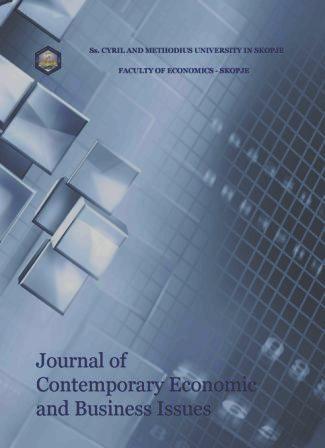HOW DO PARLIAMENTARY ELECTIONS AFFECT STOCK MARKET VOLATILITY? EXAMPLE FROM THE REPUBLIC OF MACEDONIA
Keywords:
MBI 10, stock market volatility, GARCH, ElectionsAbstract
The main aim of this research is to examine the effect that political elections have on stock prices on the Macedonian Stock Exchange Index MBI 10. Our paper strains to imply the existence of problems due to political uncertainties of the efficient market hypothesis. The methodology used for the research is a simple generalized autoregressive conditional heteroscedasticity GARCH (1, 1) model. Also, to control if political uncertainty before the elections influences the return of MBI 10, a dummy variable (D60) is added. In addition, Wald test is applied. When the dummy variable is included in the model, the level of significance is 5%, meaning that the 60-day period before the elections is important for the stock exchange market. Moreover, we find that that past innovations impact MBI 10 asymmetrically. On the basis of a political regime that has two main political parties, this paper finds that the conditional mean of the stock market index is affected by the political uncertainty. The results imply that the parliamentary elections are significant, thus they do impact the Macedonian Stock Exchange.
References
Downloads
Published
Issue
Section
License
Authors retain copyright of the published papers and grant to the publisher the non-exclusive right to publish the article, to be cited as its original publisher in case of reuse, and to distribute it in all forms and media.
Authors are permitted to deposit publisher's version (PDF) of their work in any repository, personal and institutional websites, but full bibliographic information (authors, titles, volume, issue etc.) about the original publication must be provided.

